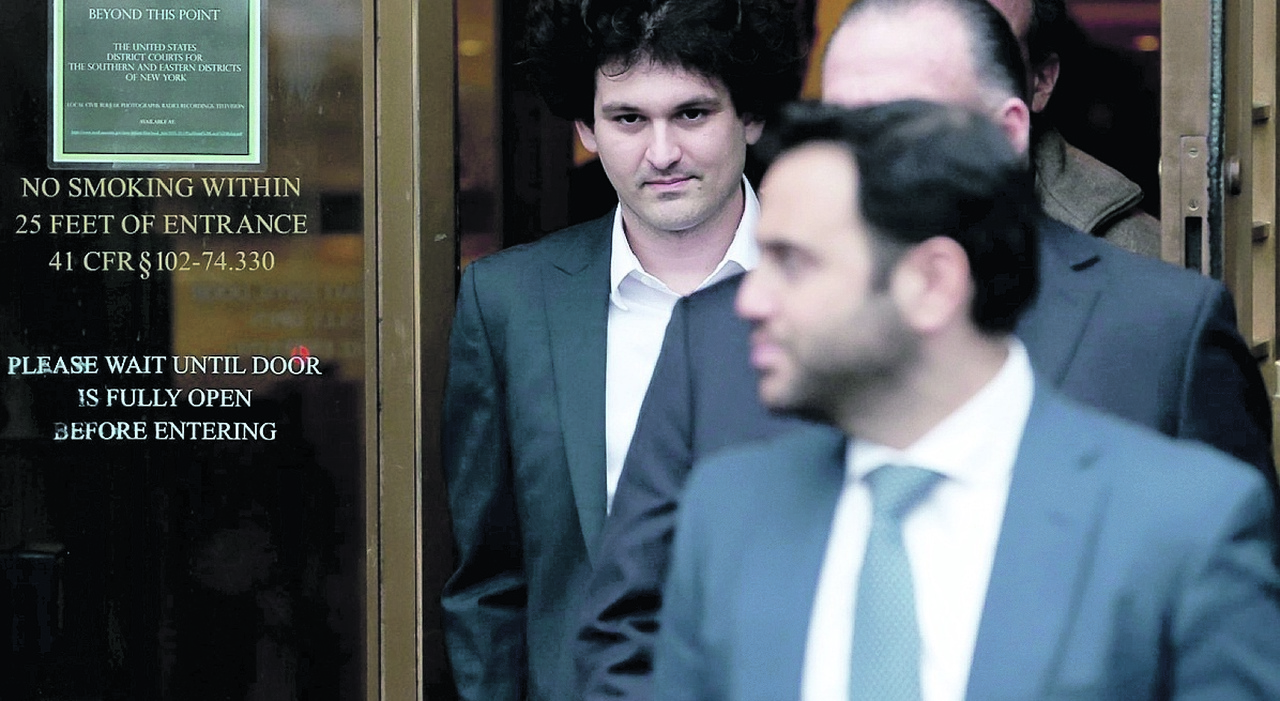Last November is almost prophetic Paul Krugman He explained that the bankruptcy of Ftx would have led to a systemic crisis for the exchange platforms Digital currenciesLike the dotcom bubble that brought the technology sector to its knees in the late 1990s. The week that just ended showed how more than immediate the economist’s expectations were.
Sam Bankman-Fried, Founder of Fxt: The $32 Billion Cryptocurrency Empire
On one side is cryptocurrency lending giant Genesis, which is preparing to cut 30% of its staff and could consider bankruptcy, the Wall Street Journal reports. In this context, Genesis represents the first pawn in the chessboard of the crisis sparked by the bankruptcy of Ftx due to the fraud organized by the founding boss Sam Bankman-Fried, who is now awaiting trial for fraud: the exchange was in fact the main client of Genesis, which offers its customers high-risk loans He may not be able to raise enough cash in the coming months to stay afloat. Genesis has also been hit hard by the long wave of bankruptcies of two other companies, Alameda Research and hedge fund Three Arrows Capital, to which the Genesis Group has given loans.
Prices up to 40% off
The second digital currency giant to collapse is Silvergate Capital, a financial services and cryptocurrency firm that went so far as to lose 46% on Wall Street after announcing 40% cuts in its staff and a collapse in its customer deposits that fell from $11.9 billion. To $3.8 billion in just one quarter: $8.1 billion is all gone, with Wall Street down nearly 70% in the same period. According to the group, the leak is due to investors’ lack of confidence in the cryptocurrency sector.
In all this confusion also joins Huobi, a huge stock exchange based in the Seychelles, which again due to the collapse of Ftx is preparing to cut 20% of its staff. Then there’s CoinBase, another exchange giant, which just agreed to pay a $100 million fine to the state of New York for not doing enough checks on customers who wanted to open an account and therefore not complying with anti-money laundering regulations.
Krugman’s prophecy
Finally, the state of New York also sued Alex Machinsky, the founder of cryptocurrency bank Celsius Network, who lied to clients for years by promising safe investments. And to make it more serious, the Federal Reserve has considered the matter, which on January 3 published a note to banks saying that it was “highly likely” that the use and exchange of digital currencies “is not consistent with sound and safe banking practices.”
But according to some analysts, there will also be positive signs, which show how the cryptocurrency winter in the next couple of years could turn into a renaissance. On the other hand, the decrease in inflation and the consequent change in the policies of the Federal Reserve is fundamental, which will begin to reduce the rise in interest rates, thus providing more liquidity and thus allowing for larger investments. On the other hand, going back to what Krugman predicted, serious rules are needed for the entire sector, which gives investors more confidence. There are signs already: last June, the European Union finalized the EU market’s Crypto Asset Regulation (MiCa), a set of rules for the cryptocurrency sector in Europe that could stabilize the sector when it comes into effect. The same could soon arrive in the UK as well.
In the United States, historically less timely on regulation, the Biden administration just published a framework of rules for cryptocurrency and expects Congress will soon work on a law to revive the entire sector.
© Reproduction Reserved

“Infuriatingly humble alcohol fanatic. Unapologetic beer practitioner. Analyst.”


